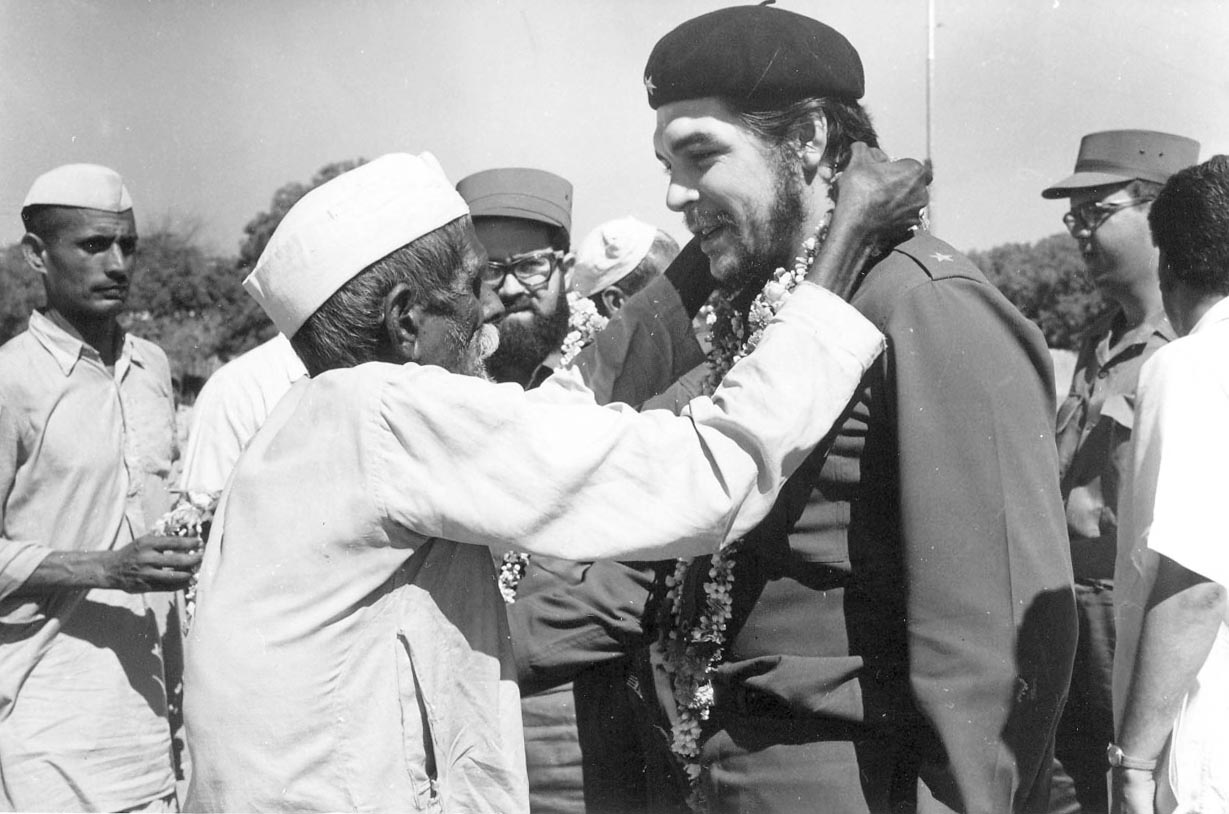
Guevara remains both a revered and reviled historical figure, polarized in the collective imagination in a multitude of biographies, memoirs, essays, documentaries, songs and films. As a result of his perceived martyrdom, poetic invocations for class struggle and desire to create the consciousness of a "new man" driven by moral rather than material incentives,[16] Guevara has evolved into a quintessential icon of various leftist movements. Time magazine named him one of the 100 most influential people of the 20th century,[17] while an Alberto Korda photograph of him, titled Guerrillero Heroico (shown), was cited by the Maryland Institute College of Art as "the most famous photograph in the world".[18]
http://www.huffingtonpost.com/michael-gonzalez/el-che-the-crass-marketin_b_1199252.html
There’s something about Che Guevara that convinces older European men that they will become cooler through association with his “brand.” We saw that again yesterday when Mercedes-Benz Chairman Dieter Zetsche launched a new car under a banner picture of Guevara. Years ago, an equally desperate Anglican clergyman tried to stem dwindling congregations with a poster of Guevara wearing a crown of thorns. The hip slogan? “Meek and Mild? As if.”
González, M. (2012). El Che: The Crass Marketing of a sadistic racist. Huffpost. The Blog.

Che Guevara Can Defend Himself
Saving Che from eurocentricism
Sukant Chandan
Sons of Malcolm
21 March 2012
Like so many revolutionary icons of our history of struggle against imperialism, Che Guevara has been ripped of nearly all his content and belittled into a student culture icon, a face to pin on a t-shirt, bedroom wall or mug, all these things usually in the ownership of mugs.
Back in the late 1990s I held a new year's party with some friends in Southall, West London, and a white youth came with a Che t-shirt, I asked him if he knew who the person was, he said 'Charles Manson', apart from Manson obviously not being Che, Manson was an unhinged cult leader from the usa in the 1960s linked to all manner of wacky things.
http://sonsofmalcolm.blogspot.com/2012/03/on-defending-che-guevara-ches-most.html
http://web.b.ebscohost.com/ehost/pdfviewer/pdfviewer?vid=7&sid=8d2ec3eb-1cbe-415b-ac3a-2ea92744b792%40sessionmgr104
Hero, lover, demon, fool: fictional appropriations of Che Guevara.


"Above all, always be capable of feeling deeply any injustice committed against anyone, anywhere in the world." Che
http://www.medigraphic.com/pdfs/meduni/mu-2007/mu074j.pdf
Piñeiro R. y Villarreal, M. (2007). Ernesto Guevara, el médico. Etica, filosofía e historia de la medicina. Medicina Universitaria, 9 (37), 208-13.